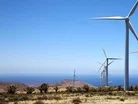SAP: driving transparent renewable energy distribution

Business Chief takes a look at how Kenya’s REREC is harnessing SAP technologies to improve efficiency and transparency in renewable energy distribution.
Currently within the African region, Kenya is a leader in renewable energy development with over 70% of its electricity generated from geothermal sources, and has an estimated 9mn households with access to off-grid renewable energy. As a result the country is ninth in the world for geothermal power generation.
In 2018, the President of Kenya announced plans to have the country fully dependent on green energy by 2020.
“The directive from the President was made to ensure transparency, efficiency and integrity in state procurement processes,” said Peter Mbugua, CEO at REREC. “As one of the leaders in renewable energy on the African continent, we wanted to ensure we remained compliant while also leveraging new technologies to improve efficiency and transparency in our tender and procurement processes and provide an improved customer experience.”
As a result the Rural Electrification and Renewable Energy Corporation (REREC) in Kenya, partnered with SAP to harness the software companies technological capabilities to enhance transparency and efficiency within its tender and procurement process, and to improve customer experience.
The enhancement of its operations will include:
-
Migrating its tender systems to e-platforms
-
Enabling expert bid evaluation, contract lifecycle management and supplier self-service via Project Platinum a digital transformation project
The Rural Electrification and Renewable Energy Corporation (REREC) is a state corporation in Kenya, established via the enactment of the ENergy Act 2019.
REREC specialises in the energy and utility industries and is responsible for the implementation and management of renewable energy in the country.
Due to being a state corporation REREC must comply with official directives from the president that ‘all state corporations migrate their tender systems to e-platforms and take advantage of new technologies that enhance transparency and efficiency.’
“This state-sanctioned move came with multiple hurdles, one of those being the tender process for setting up and maintaining a new procurement system,” said Mbugua. “We had nine months to launch the Digital Transformation project, which we successfully rolled out in February 2018. We have since reduced the tendering time from 60 to 30 days, reduced the evaluation time for submissions from 90 to 30 days and lowered the tender execution time to no longer than 30 days.”
By harnessing SAP’s standard best practices as much as possible, REREC “worked closely with SAP to implement best practices and minimise reliance on customisation, which can extend project timelines and increase associated costs. Through dedicated and skilled project implementation teams combined with effective governance enabled by senior support and involvement, we were able to meet all our project obligations within time and with cost-savings,” adds Mbugua.
“We are now looking to move our procurement processes to SAP Ariba, where we can take advantage of all the new technologies on offer,” said Mbugua. “We are also implementing a migration to SAP S/4HANA to enable our future technology roadmap and ensure our competitiveness in the digital age.”
SEE ALSO:
For more information on business topics in Africa, please take a look at the latest edition of Business Chief EMEA.
- How analogous inspiration can solve your strategic deadlockLeadership & Strategy
- Leaders are obstructing their own environmental progressSustainability
- How SAP is facilitating continuous business transformationDigital Strategy
- OMV Group: On the path to net zero thanks to AspenTechSustainability
Featured Articles
SAP has announced it has appointed a new President for a newly-created EMEA region, aiming to make the most of the opportunities of cloud and AI technology
Technology giant SAP has expanded its portfolio with the acquisition of LeanIX, a leader in enterprise architecture management (EAM) software
To help businesses achieve increased productivity, Siemens and Microsoft are deepening their partnership by showcasing the benefits of generative AI

